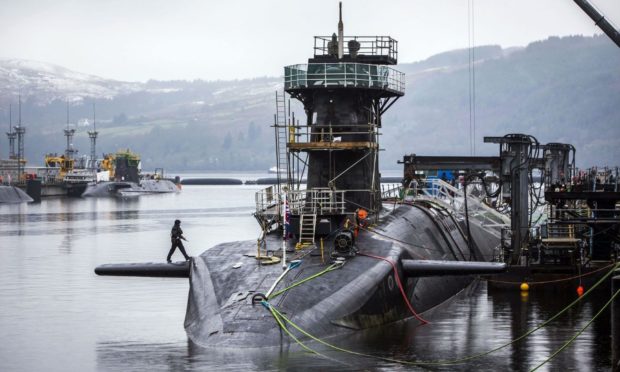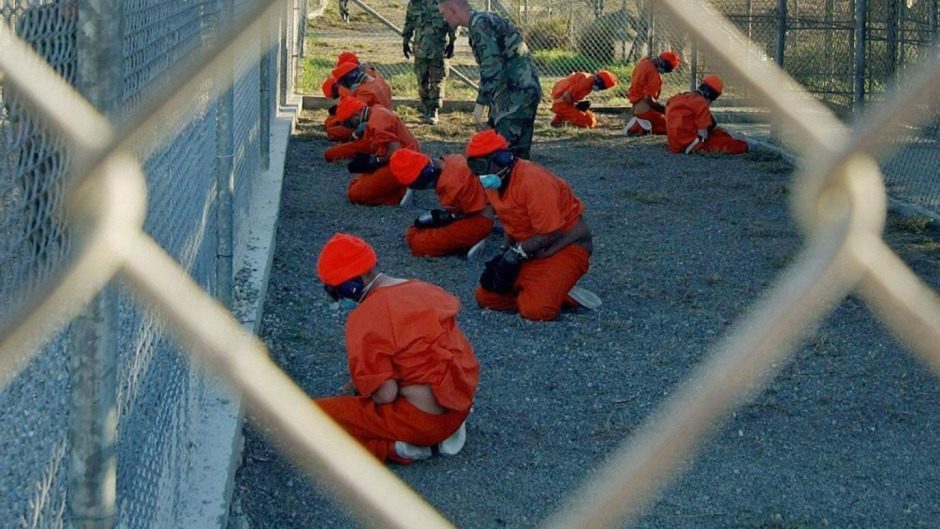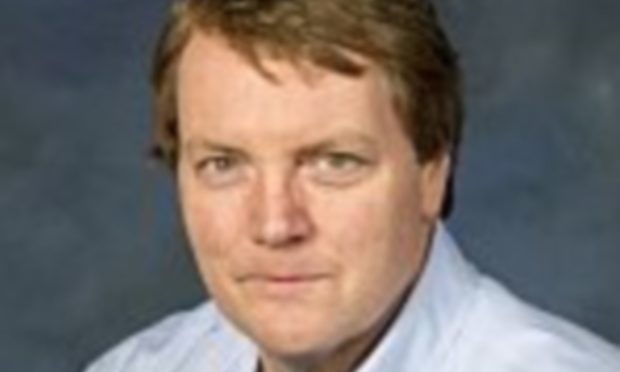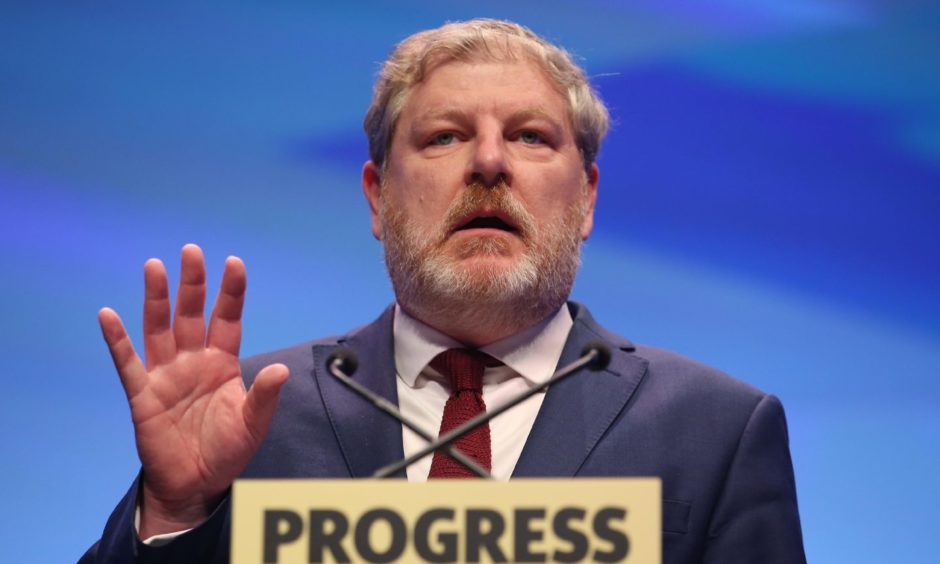Charging the UK Government to keep Trident on the Clyde in anindependent Scotland is more likely to lead to nuclear disarmament than demanding immediate removal, a defence expert says.
Professor Phillips O’Brien of St Andrews University has said leasing Faslane for millions of pounds for a “transition period” in the event of a second referendum Yes vote could be a stepping stone to a nuclear-free UK.
Professor O’Brien, an expert in strategic studies, argued SNP strategy should be to try to reach a deal on Trident in Scotland if it ends up in negotiations with the rest of the UK (rUK).
Speaking at a webinar organised by the Irish Defence Forces Officers’ Club, Professor O’Brien argued calls for nuclear weapons to be swiftly banished from an independent Scotland would prove counter-productive.
Ridding Scotland of nuclear weapons has long been a touchstone policy for the SNP, second only to Scottish independence.
Professor O’Brien appeared at the event alongside former SNP Westminster leader Angus Robertson, who masterminded the party’s defence strategy ahead of the 2014 referendum, and Stuart Crawford, a former army officer who used to advise the Nationalists on defence matters.
Mr Crawford has produced a paper arguing that the UK Government could be charged £200 million a year to keep Trident at Faslane until a new base capable of storing warheads can be built south of the border.
Mr Crawford has acknowledged that such an approach would not go down well with the SNP’s fiercely anti-nuclear weapons grassroots activists.
But he has argued that the presence of rUK weapons in an independent Scotland run by a government that was against Trident would be a valuable “bargaining chip” in post-Yes vote talks.
During the webinar, Professor O’Brien agreed such an approach would strengthen an independent Scotland’s negotiating hand after an independence vote and could ultimately result in the rUK getting rid of nuclear weapons completely.
Foreign enclaves – the leasing of territories to other countries is not unprecedented
After the Anglo-Irish Treaty of 1921, three deep-water “Treaty Ports” were retained by the UK in the Irish Free State. They were Lough Swilley, Cobh (formerly Queenstown) and Berehaven.
Porkkala, near Helsinki, in Finland was leased to the Soviet Union as a result of the 1944 Moscow Armistice. It remained in Russian hands until 1956 when it was returned to Finland. It now hosts the Finnish naval base Upinniemi.
The Guantanamo Bay detention camp, the notorious US military prison, is under American control even though it is located at the south-eastern end of Cuba. As a condition of Cuban independence, the US required the government to lease the territory for an American naval base in 1903. Cuba did so grudgingly and its ownership is still a matter of intense controversy.
Gwadar Port in the Pakistani Province of Balochistan has been leased to China until 2059.
Kaliningrad between Poland and Lithuania is part of Russia carved out of German territory after the Second World War.
SNP politicians have signed up to the Treaty on Prohibition of Nuclear Weapons (TPNW) and many activists’ commitment to the nuclear-free cause amounts to an article of faith.
‘Terrible negotiating position’
But Professor O’Brien criticised those within the SNP who would make swift removal of Trident a red-line issue in independence talks.
He said that an independent Scotland would not be in a position to dictate what happens to nuclear weapons given that rUK would be in a “very powerful” negotiating position.
“I would argue that instead of actually talking tough and saying we are going to order all these nuclear weapons off the Clyde Asap – which is impractical, anyway – it is far better to actually try to reach a deal to get them out gradually,” Professor O’Brien told the webinar.
Demanding instant Trident removal would put an independent Scotland in a “terrible negotiating position” that would result in a breakdown of relations with rUK, Professor O’Brien said.
He argued that an alternative approach of maintaining weapons on the Clyde for a period would give an independent Scotland time to work out its own defence strategy.
“Negotiating with the rUK in a friendly way about nuclear weapons on the Clyde would give you that time,” Professor O’Brien said.
“In that time, you might actually gain some money… in leasing out those bases.”
Professor O’Brien remarked that such an approach was “more likely to get rid of nuclear weapons in the long run” from the UK as a whole.
He added that the Campaign for Nuclear Disarmament (CND) argument, which can be heard loudly in the SNP, “drives me a bit crazy”, because it is unlikely to succeed in making the UK nuclear weapon free.
“If you try to force them (nuclear weapons) out too quickly, it is more likely the rUK will panic and try to rebase them and try to keep them,” Professor O’Brien said.
He says the removal of Trident is more likely if a long-term approach is taken. Once the implications of Scotland leaving the UK were allowed to “sink into the political understanding”, Professor O’Brien argued that the rUK would come to the view that it is time to get rid of nuclear weapons on its own accord.
‘Purity over practicality’
Speaking after the webinar, Professor O’Brien said: “Those that demand immediate removal of Trident are like hard-core Brexiteers who going for purity over actual practicality.
“Scotland can either be like a hard-core Brexiteer and say ‘these are our red lines and we are not negotiating and one of them is: get Trident out now’. In which case you will not have a negotiation, you will have a no deal with all the chaos that ensues.
He added: “The alternative is to work something out and acknowledge it will take time for the rUK to adjust to the reality of what’s happened. I don’t see such an arrangement as a permanent thing. I see it as the transition period when you can negotiate and you make some money.
“My view is that if you give them (rUK) that time, after a while they will decide it is simply not worth the cost of rebasing the nuclear weapons.”
Responding to Mr Crawford’s proposal during the webinar, Mr Robertson said there is “zero chance” the SNP would consider his Faslane leasing proposal.
Mr Robertson said: “I think the idea that the Scottish National Party Government would ever lease Faslane for money to maintain nuclear weapons operating from Scotland’s shores is so far from political reality… I leave you in absolutely no doubt that there is zero chance of that happening.”
Recently the SNP’s submission to a UK defence review called on the UK Government to commit “wholeheartedly” to multilateral disarmament. Some SNP figures expressed concern this was a dilution of the SNP’s traditional unilateral approach.













